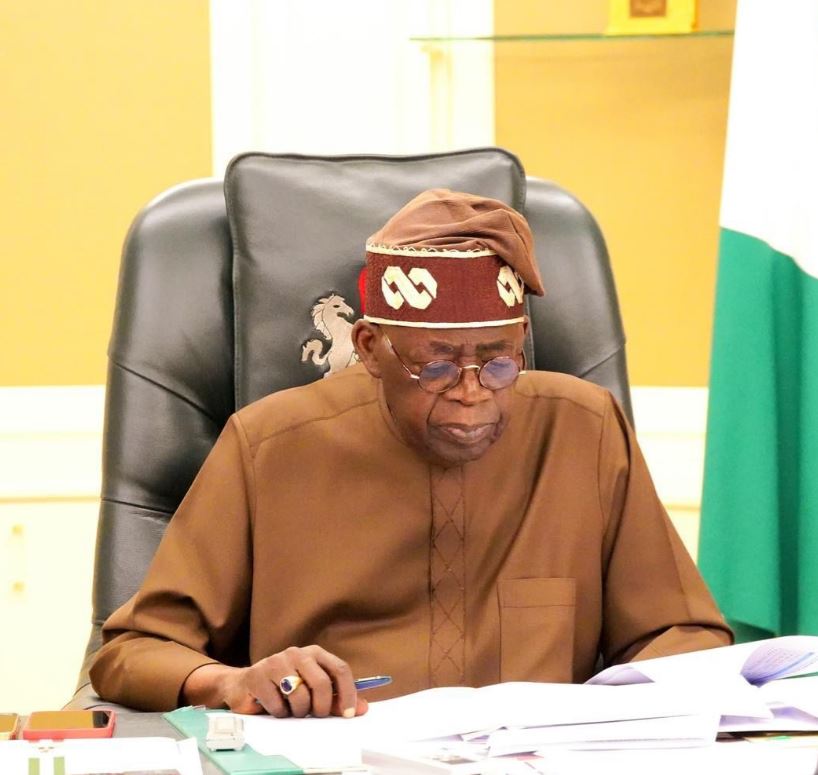In a searing rebuke of President Bola Tinubu’s two years in office, the Nigeria Labour Congress (NLC) on Thursday declared that his much-touted economic reforms have delivered more pain than progress, pushing over 150 million Nigerians into “multidimensional poverty.”
The labour union’s assessment sharply contrasts the President’s second anniversary address, where he claimed Nigeria is “on course to building a greater, more economically stable nation” under his Renewed Hope Agenda.
NLC President, Joe Ajaero, in a hard-hitting statement, dismissed Tinubu’s midterm report as “recycled neoliberal failures,” arguing that the administration’s policies have only worsened the economic reality of ordinary citizens.
“Two years after President Tinubu promised a new dawn, the only thing bolder than his rhetoric is the magnitude of hardship his policies have inflicted on workers and the poor,” Ajaero said. “Far from renewing hope, his administration has repeated the poison that made the patient sick in the first place.”
Ajaero condemned the removal of fuel subsidies and the floating of the naira, blaming them for skyrocketing inflation, hunger, business closures, and a shrinking middle class.
“The naira’s value has collapsed under so-called market forces. Nigerians have not seen gains—only suffering,” he added.
APC Hits Back: “NLC Statement Sponsored”
The All Progressives Congress (APC) swiftly rejected the NLC’s criticism. The party’s National Vice Chairman (South-East), Dr. Ijeoma Arodiogbu, accused the union of political bias and lacking economic understanding.
“Their statement was clearly sponsored. The NLC failed to engage with the real issues and instead chose to grandstand. Their remarks sound more like marketplace gossip than a serious economic analysis,” Arodiogbu said.
Inflation, Insecurity, and Broken Promises
Despite President Tinubu’s claim that the worst days are over, labour leaders nationwide expressed frustration and disbelief.
From Bauchi to Bayelsa, unionists denounced the President’s optimism as disconnected from reality.
“Insecurity is still rampant. Farmers cannot access their land. Prices of goods are out of reach, and electricity is unreliable. This is not the better tomorrow we were promised,” said TUC Chairman in Bauchi State, Sabiu Barau.
In Kwara State, NLC Chairman Saheed Olayinka said, “People still can’t afford three square meals. We are chasing shadows while poverty deepens.”
The President of the Trade Union Congress in Lagos, Gbenga Ekundayo, called for a shift away from consumption-based subsidies to production-driven investments.
“What we need is to subsidise production, not suffer the poor. We need jobs, not slogans,” he argued.
Minimum Wage Controversy
Amid skyrocketing living costs, union leaders across states criticised the new N70,000 minimum wage as inadequate and poorly implemented.
“In many cases, workers only received less than N10,000 increases,” said Benue State TUC Chairman, Gideon Akaa. “Can N70,000 feed a family of four for a month in today’s Nigeria?”
Promises vs. Reality
While Tinubu’s administration has introduced palliatives like food distribution, cash transfers, and the Presidential Compressed Natural Gas (CNG) initiative, the NLC dismissed them as “grossly inadequate.”
“There are CNG buses, yes, but the scale is nowhere near enough to address the transportation crisis and infrastructure deficit,” said the union.
The NLC also accused the government of hostility, citing unpaid wage awards, intimidation of labour leaders, and disregard for court rulings.
“For Nigerian workers, it has been two years of suppression, unmet promises, and authoritarian tactics,” Ajaero said.
“Walk the Talk,” Labour Demands
In Akwa Ibom, NLC Chairman Sunny James challenged Tinubu to “show practical results, not just rhetoric,” while Kaduna NLC Chair Suleiman Ayuba urged the President to “face reality and deliver on his campaign promises.”
In a damning conclusion, the NLC warned that unless the government abandons what it described as IMF-approved austerity policies, economic recovery will remain a mirage for most Nigerians.
“If the government truly wants to renew hope, it must put Nigerians, not foreign creditors, at the centre of its policies,” the union said.
The war of words between the government and organised labour underscores the deep divide over the true impact of President Tinubu’s reforms—a divide that may shape the political and economic landscape ahead of the next election cycle.




